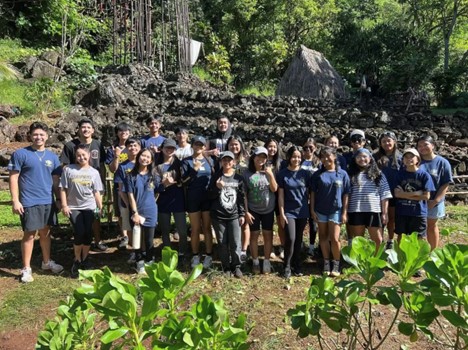
Community service has long been recognized as a powerful tool for personal growth and social contribution. For college students, engaging in community service offers unique opportunities to enhance their educational experience, develop critical skills, and build a stronger connection to their college environment. The benefits of community service extend beyond altruistic endeavors as well, impacting students' academic success, personal development, and overall college engagement. Lynn Tincher-Ladner, President and CEO of Phi Theta Kappa, explores how community service enriches the college experience and why it is a vital component of higher education.
One of the most significant benefits of community service is its positive impact on academic performance. Studies have shown that students who participate in community service are more likely to succeed academically. Phi Theta Kappa’s Lynn Tincher-Ladner explains that this is partly because community service fosters a sense of responsibility and discipline, which translates into better time management and study habits. Additionally, the practical experience gained through service can enhance classroom learning by providing real-world applications of theoretical concepts.
For instance, students studying social work, education, or public health can directly apply their knowledge in community settings, deepening their understanding of the material and making their academic work more relevant. This hands-on experience often leads to improved grades and a greater sense of accomplishment. Furthermore, the skills developed through community service, such as communication, teamwork, and problem-solving, are essential for academic success and can contribute to higher retention and graduation rates.
Community service is an excellent way for college students to develop essential personal and professional skills. Volunteering exposes students to diverse environments and challenges, requiring them to adapt and think critically. These experiences help build resilience, empathy, and a sense of civic responsibility, all of which are invaluable in both personal and professional contexts.
Moreover, community service often involves working in teams, which helps students develop collaboration and leadership skills. Whether organizing a fundraising event, coordinating a community clean-up, or mentoring younger students, these experiences provide opportunities to practice leadership, communication, and project management.
Employers highly seek these skills, making students who engage in community service more competitive in the job market. In addition to building professional skills, community service also promotes personal growth. Students often find that volunteering helps them discover their passions, develop a stronger sense of self, and gain a broader perspective on the world. Phi Theta Kappa’s Lynn Tincher-Ladner understands that this personal development is crucial during the college years, a time when many students are exploring their identities and future career paths.
One of the most profound impacts of community service is its ability to strengthen students' engagement with their college community. Phi Theta Kappa’s Lynn Tincher-Ladner understands that engaged students are more likely to feel connected to their institution, which can lead to a more fulfilling and successful college experience. Community service fosters this connection by providing opportunities for students to interact with peers, faculty, and community members in meaningful ways.
Through service, students can build relationships with others who share similar values and interests, creating a sense of belonging and community on campus. These connections are particularly important for first-year students, who may struggle with the transition to college life. Participating in community service can help them feel more integrated into the college community, reducing feelings of isolation and homesickness.
Additionally, community service often involves collaboration with college faculty and staff, providing students with valuable networking opportunities and mentorship. These relationships can enhance students' academic and professional development, offering guidance and support throughout their college journey.
Community service plays a crucial role in promoting civic engagement and social responsibility among college students. Lynn Tincher-Ladner emphasizes that by participating in service projects, students become more aware of social issues and the needs of their communities. Gaining this awareness can inspire a lifelong commitment to civic engagement and activism, empowering students to become agents of change in their own communities and beyond.
Moreover, community service encourages students to consider their role in society and the impact of their actions. Phi Theta Kappa’s Lynn Tincher-Ladner explains how this reflection fosters a sense of social responsibility, motivating students to use their skills and knowledge to contribute positively to the world. As students become more engaged in their communities, they are likely to develop a deeper understanding of the importance of social justice and equity, further enhancing their commitment to making a difference.
Community service offers a wealth of benefits for college students, from enhancing academic success to promoting personal growth and civic engagement. By participating in service activities, students can develop essential skills, build meaningful connections, and strengthen their engagement with their college community. These experiences not only enrich students' college years but also lay the foundation for a lifetime of civic involvement and social responsibility.
Incorporating community service into the college experience is a powerful way to prepare students for the challenges and opportunities of the future. Phi Theta Kappa’s Lynn Tincher-Ladner emphasizes that as colleges and universities continue to emphasize the importance of holistic education, community service will remain a vital component of student development, helping to create well-rounded, socially responsible graduates who are ready to make a positive impact on the world.